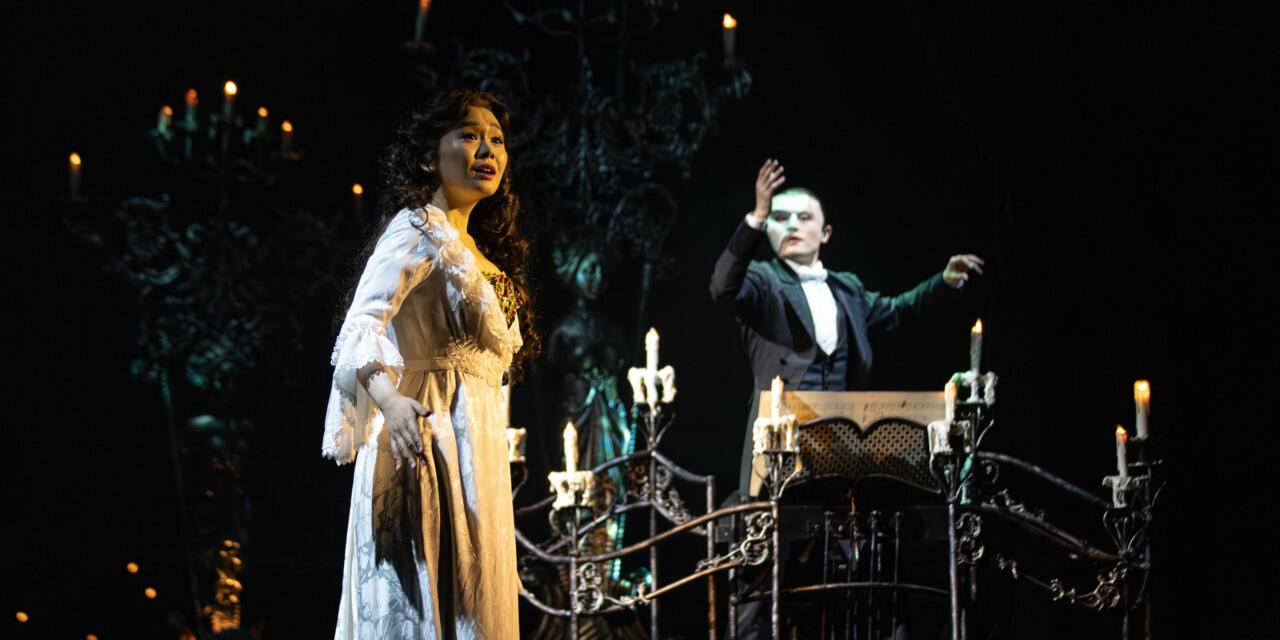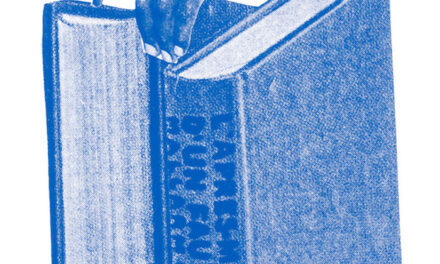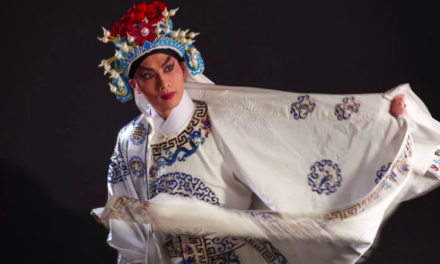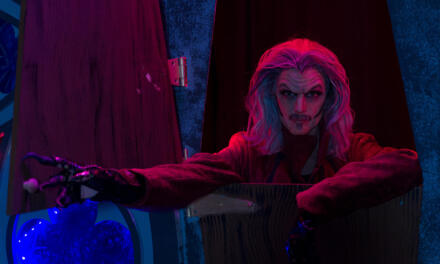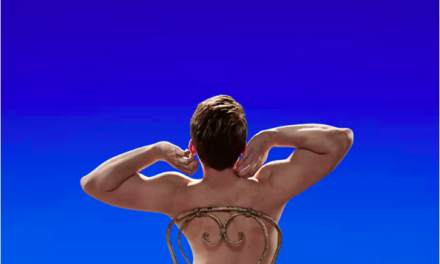The pandemic was unusually kind to China’s musical theater scene, but an obsession with established properties threatens the industry’s creativity.
The past six months have been good to Shanghai’s musical theater industry. Already buoyed by the rising popularity of musical theater-themed reality singing competitions, theaters have enjoyed a string of hits this spring — the first season in three years unaffected by the COVID-19 pandemic.
The run began in April, with the debut of a Chinese version of The Phantom of the Opera. That was followed by a Chinese-language musical version of Hamlet and finally by the arrival of the French musical Roméo et Juliette, which was heralded as the first musical performed by an international troupe in Shanghai since the city’s lockdown last year. Smaller playhouses have scored recent successes of their own, including production company iMusical’s adapted-from-TV offerings The Long Night and The Bad Kids.
On social media, directors and other insiders have celebrated the success of these shows as signaling a “return to normal” for Shanghai’s musical theater scene. That’s a fair evaluation if not necessarily an entirely positive one: A review of the productions that have premiered over the past six months suggests that, artistically at least, Chinese musical theater is in almost the exact same position it was prior to COVID-19.
Commercially, the first two years of the pandemic were kind to Chinese musical theater troupes, as the industry banded together to reap the benefits of a boom in public interest fueled by popular TV reality shows like Super-Vocal, as well as the inability of high-profile international productions to tour in the country. Musicals generated over 1 billion yuan ($155 million) in 2021, up from 600 million yuan just two years prior. But the lack of competition, whether internally or from international troupes, also led to a kind of creative stagnation, similar to how Baidu regressed in the wake of Google’s withdrawal from the mainland China market.
Instead of seizing the chance to improve, production companies have spent the past few years churning out cheap, unambitious fare starring a small handful of already popular stars. There have been standouts, of course, including The Orphan of Zhao and No Longer Human, but even they have their flaws.
Even more common are straightforward copies of popular international shows. Beginning in late 2021 with adaptations of the Korean musical The Devil and Roméo et Juliette, which lifted its choreography and makeup directly from the French original, Chinese producers have gravitated toward established acts over new productions. More recent examples include Chinese versions of Anna Karenina, The Count of Monte Cristo, and the above-mentioned The Phantom of the Opera.
This tendency to “Sinicize” foreign musicals dates back over a decade. At first, it was mostly limited to more affordable Korean shows, but now it threatens to consume the entire Chinese musical industry, as producers seek out valuable intellectual properties like Phantom of the Opera or Hamlet.
In the absence of innovation, the producers of these works typically put great effort into casting, with the same handful of popular actors appearing in multiple shows. Take the Mongolian-Chinese actor Ayanga, for example. The breakout star of the 2018 season of Super-Vocal, Ayanga has headlined the Chinese versions of three musicals since 2021: Roméo et Juliette, The Count of Monte Cristo, and The Phantom of the Opera.

Ayanga performs in “The Count of Monte Cristo” (left) and “The Phantom of the Opera” (right). From @阿云嘎Musical on Weibo
He’s a fine actor, but starring in three vastly different musicals in quick succession would tax anyone’s abilities. By comparison, the original male lead in Roméo et Juliette was played by Damian Sargue off and on for well over a decade. The domestic musical market doesn’t seem interested in giving actors that much time to hone their craft, however, and without Ayanga, works like Roméo et Juliette and The Count of Monte Cristo would likely have faced a dire fate at the box office.
This disinterest in craft is equally true of translation, as many Chinese versions of international shows have come in for heavy criticism for clumsy lyrics and choices. The Chinese version of Roméo et Juliette, for example, turned the eponymous pair’s poignant love story into a cliché-ridden, confusing mess. For example, when Juliette’s wet nurse and Roméo’s two friends start singing “Les Beaux, Les Laids” (“The Beautiful, the Ugly”) near the end of the show’s first half, it was translated into Chinese as “The Beauty and the Beast.”
These flaws become all the more glaring when a Chinese adaptation finds itself up against the original. When I sat down for a repeat viewing of the French version of Roméo et Juliette at the Shanghai Culture Square in early June, I couldn’t help but remember how it felt to watch the Chinese adaptation at the same theater just two years prior. Although overseen by the French producer behind the original, it lacked the chemistry, power, and attention to detail of the French-language version.
Given these precedents, it’s worth noting that the recent Chinese The Phantom of the Opera adaptation took pains to polish its Chinese lyrics and choreography. It also eschewed the star-heavy marketing approach of other adaptations. Despite featuring Ayanga, tickets to The Phantom of the Opera were sold without a formal cast announcement. The move stirred controversy online, but it was an effective, if minor rebuttal to the growing influence of the fan economy on musical theater.
As international theater troupes return to China, it’s worth asking what producers are trying to accomplish with their adaptations. Are they trying to study and learn from the more mature infrastructure of foreign troupes? Are they attempting to bypass the enormous time and cost commitments inherent to producing and developing original musicals? Or is it all just another IP-based cash grab?
Translator: Katherine Tse; editor: Wu Haiyun.
This article was originally published by Sixth Tone (https://www.sixthtone.com/). Reposted with permission. Read the original article.
This post was written by the author in their personal capacity.The opinions expressed in this article are the author’s own and do not reflect the view of The Theatre Times, their staff or collaborators.
This post was written by Wu Changchang.
The views expressed here belong to the author and do not necessarily reflect our views and opinions.

